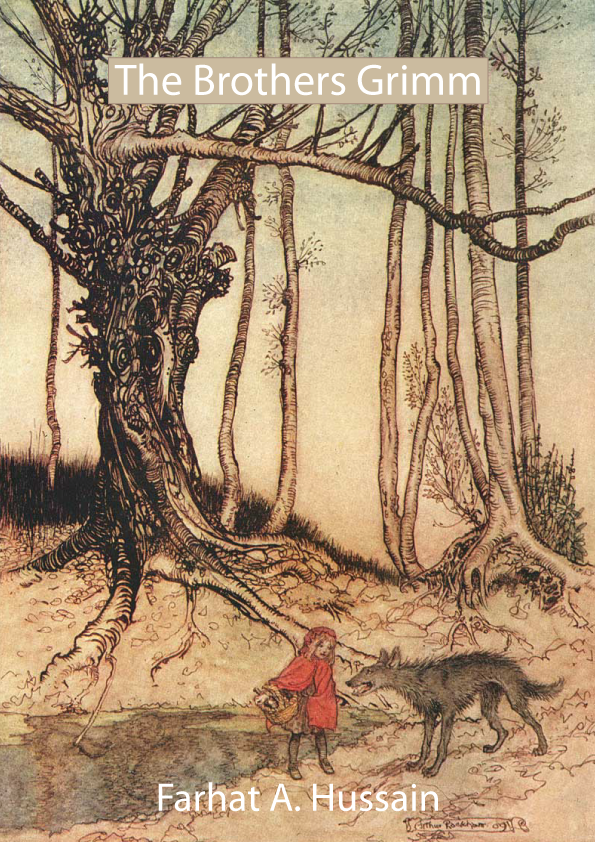
The Brothers Grimm
Author: Farhat A. Hussain
Pagination, format and price to be announced
Date of publication: To be announced
The Brothers Grimm
Writers Jacob (1785-1863) and Wilhelm Grimm (1786-1859) resided in Hanau in Germany to their father’s demise in 1796 and later studied at the University of Marburg where they became interested in German folklore. Folklore was a subject of growing interest in Europe in this period due also to the impact of Romanticism and nationalism. Of the latter, the Brothers Grimm (die Brüder Grimm or die Gebrüder Grimm) came to be influenced by Friedrich von Savigny (1779-1861) of Frankfurt am Main as a result of which the ideas of Johann Gottfried Herder who championed Germanic culture and natural poetry via championing simple forms of German literature and Old German. The impact of the passing of their father resulted in much poverty that characterized their early lives. At university they were often insulted by students from wealthy backgrounds. Consequently, the Brothers Grimm became immersed in their studies, research and writings about German folklore. The result of these efforts became well known across the many German states and soon spread across Europe. The work of the Brothers Grimm also played a role in the awakening of Germanness that arguably played an instrumental role in the unification of the German states into Germany, a process that was completed in 1871 under Bismarck who also mobilized diplomacy and the Prussian military. Germans continued to focus on the writings of the Brothers Grimm during the twentieth century for both enjoyment and a sense of being German though the readership of these stories by this time was global. Careful study of some of the folklore stories by the Brothers Grimm reveals their foreign origin, sometimes spanning thousands of years as stories travelled across lands and regions, subject to translation of culture. These and other issues are examined in this work that is also presented by the author in his book The Philosophy of History. A shorter version of this work was written by the author for a student publication of his Cambridge college that made impact on the editor and readers especially in demonstrating the link between the work of the Brothers Grimm and German nationalism. Various issues and aspects of the lives and work of the Brothers Grimm are critically evaluated in this concise yet information rich study by someone whose own childhood was exposed to some of these folklore stories that were contrasted with other stories such as those by the Danish author Hans Christian Andersen.